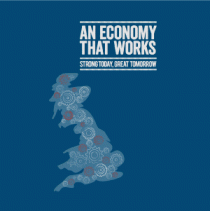- About
- Team
- Projects
- Children and the Environment
- ELiCiT (Exploring lifestyle changes in transition)
- Foundations for Sustainable Living
- HABITs
- Mapping Rebound Effects
- PASSAGE (Prosperity and Sustainability in the Green Economy)
- Policy Dialogue
- Price Responsiveness of Demand in Energy
- Resilience and Sustainable Lifestyles
- Sustainability Transitions in Food Systems
- Sustainable Living in Remote Rural Scotland
- Publications
- News
- Events
Who rebounds most? Estimating direct and indirect rebound effects for different UK socioeconomic groups
| Title | Who rebounds most? Estimating direct and indirect rebound effects for different UK socioeconomic groups |
| Publication Type | Journal Article |
| Year of Publication | 2014 |
| Authors | Chitnis, M, Sorrell, S, Druckman, A, Firth, SK, Jackson, T |
| Journal | Ecological Economics |
| Volume | Volume 106 |
| Pagination | 12–32 |
| Abstract | This study estimates the combined direct and indirect rebound effects from various types of energy efficiency improvement and behavioural change by UK households and explores how these effects vary with total expenditure. The methodology is based upon estimates of the expenditure elasticity and GHG intensity of 16 categories of goods and services, and allows for the capital cost and embodied emissions of the energy efficiency measures themselves. The study finds that rebound effects, in GHG terms, are modest (0–32%) for measures affecting domestic energy use, larger (25–65%) for measures affecting vehicle fuel use and very large (66–106%) for measures that reduce food waste. Furthermore, measures undertaken by low income households are associated with the largest rebound effects, with direct emissions forming a larger proportion of the total rebound effect for those households. Measures that are subsidised or affect highly taxed energy commodities may be less effective in reducing aggregate emissions. These findings highlight the importance of allowing for rebound effects within policy appraisals, as well as reinforcing the case for economy-wide carbon pricing. |
| URL | http://www.sciencedirect.com/science/article/pii/S0921800914002055 |













